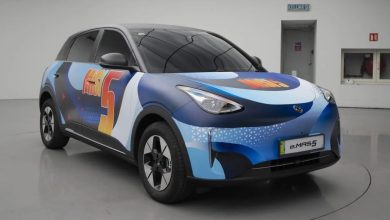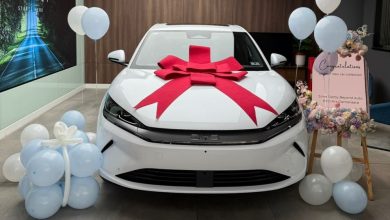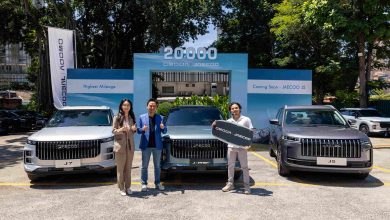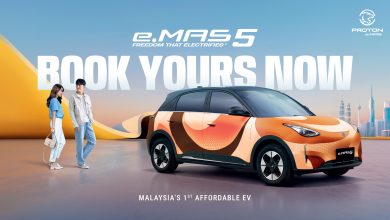Toyota Partners With 7-11 For Hydrogen Truck Pilot Program
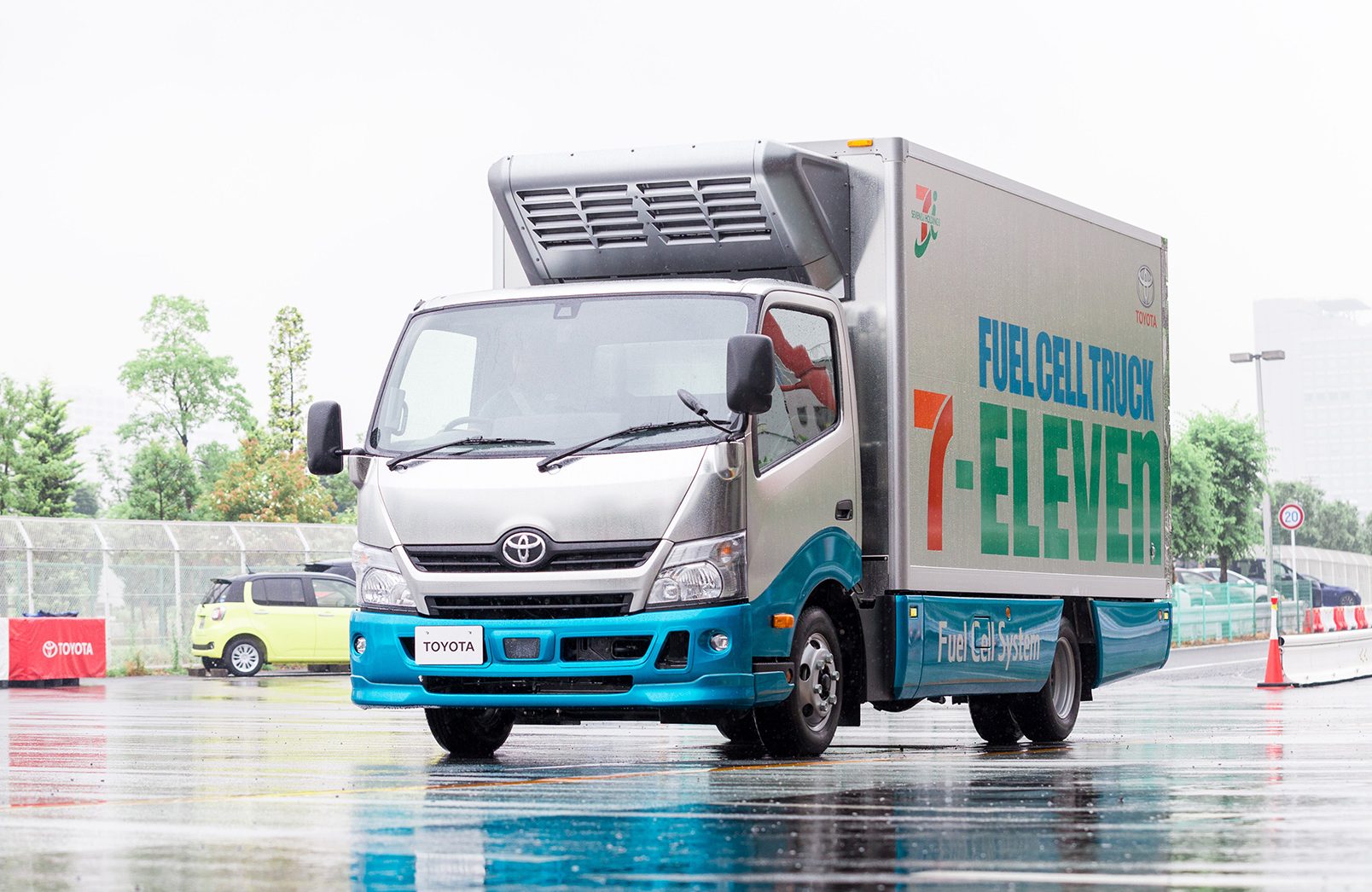
FamilyMart and Lawson are also working with Toyota and Hino on this green transportation initiative.
Toyota and Hino has recently announced that they have begun a collaboration with the three main convenience store chains in Japan: Seven-Eleven, FamilyMart and Lawson, to introduce light-duty hydrogen fuel cell electric trucks (light-duty FCETs) into their distribution network.
SNSで送るソーシャルギフトが人気20200503103915189_Data-1024x576.jpg)
According to Toyota, the main aim of this collaboration is to study the feasibility of these zero-emission trucks in a working environment, as well as establishing an environment for the widespread use hydrogen fuel-cell electric trucks in the future. This is all done in the goal of ‘a sustainable society that takes into account global warming and energy diversification’.
The gist of this agreement here is that the aforementioned Japanese convenience store chains will have a small fleet of these Toyota/Hino developed hydrogen fuel cell trucks on a trial run period for a year beginning from 2021. Throughout this year-long trial period, the operators will verify the feasibility of these zero-emission trucks in its daily logistical operations, especially between multiple distribution centres and stores.
At the end of this pilot project, suggestions are to be made on whether continued trials are viable in the future, from both a business and societal point of view. Discussions and future collaborations are also to be had to identify and improve on the various shortfalls facing the future popularisation of hydrogen as a viable fuel source for motor vehicles.
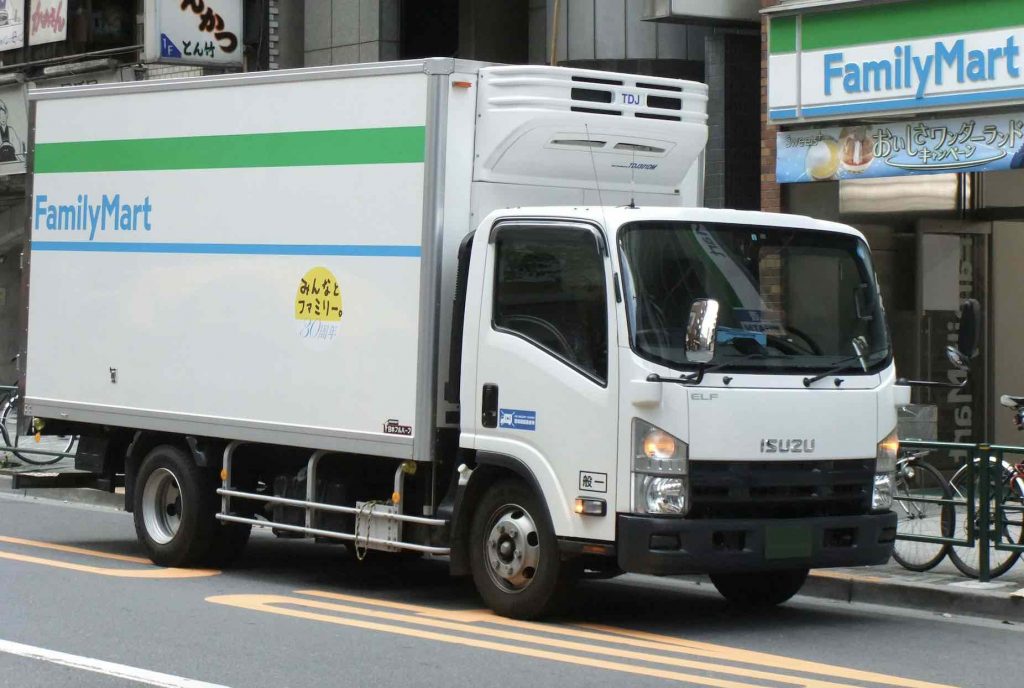
While the agreement in itself may be a fairly mundane affair, there is cautious optimism for this agreement to be the spark needed to ignite the big leap that hydrogen needs for it to be recognised as a viable alternative to battery powered EVs.
It is already a proven fact that hydrogen-powered trucks are the best zero tailpipe emissions alternative to the currently diesel-powered trucks. This is mainly thanks in part to its high energy density fuel and low refuelling times, especially when compared to battery-powered trucks.
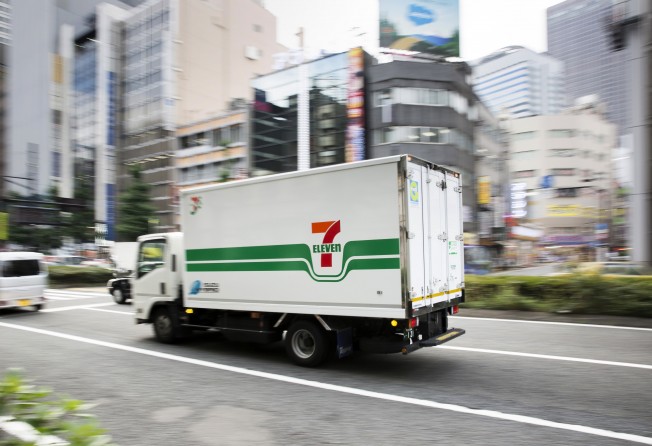
Furthermore, while hydrogen may yet to become viable for the commercial long distance haulage industry, these short to medium distance trips demanded by the logistic operations of these convenience chains shouldn’t be a problem for these hydrogen fuel-cell trucks. Toyota and Hino have already stated that its trucks can comfortably achieve a cruising range of 400 km, which is more than sufficient for the uses in this specific application, and other similar applications in future too.
However, unlike batteries where there is already infrastructure in-place in the form of a national electric grid, hydrogen filling stations still remain few and far between. Even in Japan, with its nation’s automakers undoubtably the leaders of the hydrogen-powered automotive revolution, there are only currently less than 120 of hydrogen filling stations around the country.

Saying that, if this pilot project does become a commercial reality, and these large corporations start using these zero-emissions trucks en-masse, there is to surely be a rapid boom in hydrogen infrastructure around that region to support these large-scale operations. Which could then lead to the proliferation of hydrogen powered electric cars in Japan.
Then again, there is are a few caveats to all this optimistic speculation though. That is because while Japan may be at the forefront of hydrogen powered transportation innovations, it still remains to be seen how well can this idea be exported to other countries around the world. Most notably poorer countries who can’t afford the significant outlay needed for a comprehensive nationwide hydrogen supply infrastructure.
Another legitimate question that is worth asking is whether hydrogen is going to be the fuel of choice for all vehicles on the road, or are we to witness an NGV-like situation, whereby hydrogen is only widespread in commercial use? While these questions have been out there for a while now, thus far the answers to these pressing queries remain unanswered with the current knowledge available today.
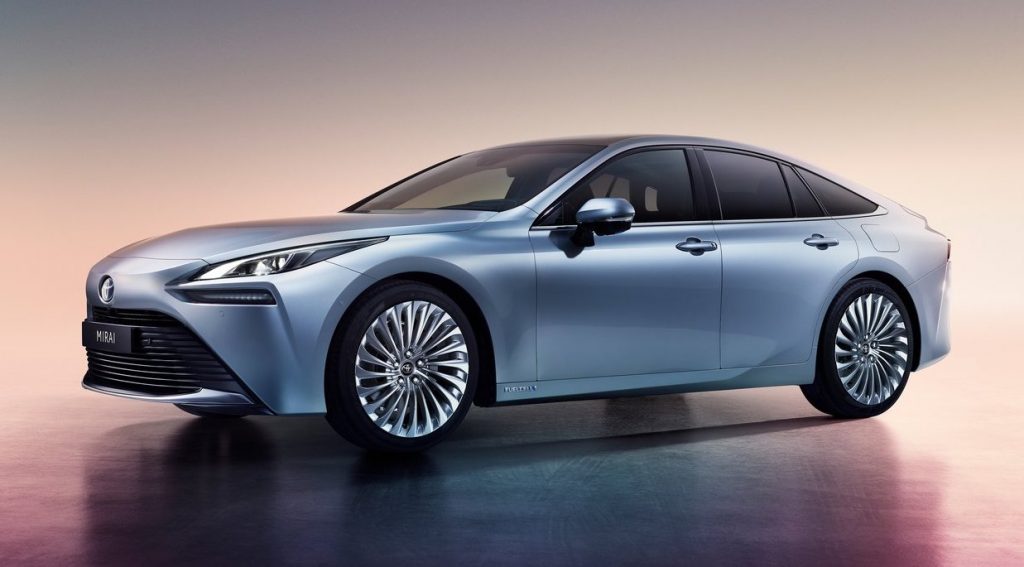
PRESS RELEASE: Toyota Motor Corporation (Toyota) and Hino Motors, Ltd. (Hino), together with Seven-Eleven Japan Co., Ltd. (Seven-Eleven), FamilyMart Co., Ltd. (FamilyMart), and Lawson, Inc. (Lawson), have agreed to jointly consider introducing light-duty fuel cell electric trucks (light-duty FCETs), and to establish an environment for its widespread use in the future, targeting the realization of a sustainable society that takes into account global warming and energy diversification.
The main points of the agreement are as follows
- In 2021, Seven-Eleven, FamilyMart, and Lawson will conduct a trial operation of light-duty FCETs (max. payload: 3 tons) jointly developed by Toyota and Hino, to verify its practicality and convenience as part of considerations for its roll out.
- In the evaluation of the trial operations, Seven-Eleven, FamilyMart, and Lawson will verify delivery by light-duty FCETs in logistics between multiple distribution centers and stores, to see whether or not continued trials are viable in 2022 and beyond, from the perspectives of businesses and the society.
- Following this, in 2022 and beyond, they will work to identify various issues relating to convenience, such as positioning of hydrogen stations, hydrogen supply, filling capability, and operating hours, in their actual use in the market, as well as the purchase of vehicles and cost of hydrogen fuel, toward future popularization.
- The parties will propose improvements in addressing these issues, and collaborate with the national and local authorities, and hydrogen station operators, to advance discussions on the necessary support and cooperative systems required to build effective mechanisms that lead to reduced CO2 emissions through the future widespread introduction of FCETs.
Truck operations underpin the daily logistics of convenience stores that support people’s daily lives. In particular, delivery trucks that distribute products such as pre-packed meals handle multiple delivery operations in one day, and are required to drive long distances over extended hours. Fuel cell vehicles that run on hydrogen, which has a higher energy density, are considered effective under such operating conditions that require them to have sufficient cruising range and load capacity as well as fast refueling capability. The cruising range for light-duty FCETs developed by Toyota and Hino will be set at approximately 400 km, aiming to meet high standards in both environmental performance and transport efficiency expected as a commercial vehicle.
To achieve growth in demand for hydrogen, hopes are held for the introduction of fuel cell commercial vehicles, such as trucks and buses, that use more hydrogen compared with passenger vehicles. With commercial vehicles, depending upon their intended use, it is also possible to know the driving range and to plan operations systematically, including handling of refueling with hydrogen. But issues still remain for their full-scale introduction, including reduction of vehicle price and the cost of hydrogen, and improvement of the convenience of hydrogen stations.
Given this situation, the five companies are making efforts to promote the establishment of an environment for the popularization of fuel cell vehicles, not only of light-duty trucks, but also of commercial and passenger vehicles. They also aim to collaborate with the national and local authorities, and hydrogen station operators, investigating various measures through the operation of light-duty FCETs in logistics settings, in order to tackle improvements and to resolve issues.

